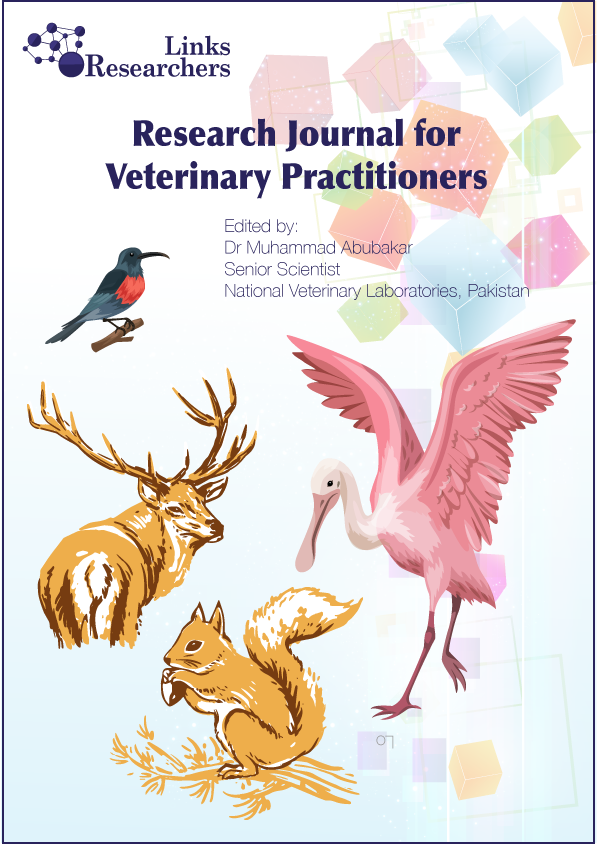Prevalence of Ectoparasites in Pet Dog and Cat in Dhaka, Bangladesh
Prevalence of Ectoparasites in Pet Dog and Cat in Dhaka, Bangladesh
Asma Sadia Authoy2, Aneek Chanda2, Aparna Datta3, Md Shohel Al Faruk4, Towhida Kamal1*
ABSTRACT
The research focused on assessing the prevalence of ectoparasites among companion animals in the Dhaka Metropolitan area from January 2022 to August 2022. Data were gathered from Teaching and Training Pet Hospital and Research Center (TTPHRC), focusing on dogs and cats exhibiting skin lesions. A cross-sectional study was conducted, utilizing comprehensive questionnaires based on various risk factors such as age, sex, breed, vaccination history, deworming, etc. A total of 174 case sheets of dogs and cats with skin lesions were analyzed. The findings indicate a higher prevalence of ectoparasite infestation among dogs and cats in semi-urban areas, recording rates of 56.92% and 76.92%, respectively, in contrast to semi-urban areas. Female cats (76.92%) and dogs (71.43%) displayed increased susceptibility compared to their male counterparts, with male cats registering 53.70% and male dogs at 54.55%. Among the ectoparasites observed, mites affected 62.5% of the studied dogs and cats, while fleas infected 8.92% and ticks 3.57%. Notably, pets aged 0 to 1 year were the most vulnerable (statistically significant p = 0.002). Dogs with ash-colored coats (77.27%) and white-coated dogs (84.62%) showed higher susceptibility than black-coated (47.62%) and brown-coated (58.82%) dogs. Vaccination showed statistical significance for both dogs and cats, whereas deworming was significant only for cats. The study highlights the need for further investigation through structured surveillance to understand variations and formulate effective control measures
To share on other social networks, click on any share button. What are these?





